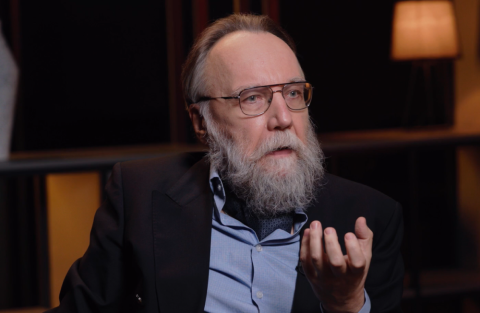A Call for a New Russian Society
Primary tabs

We have come very close to the point of no return in liberalism, not only in Russia but globally. Without a catastrophe, the liberal elites will no longer be able to retain power over humanity. Biden’s failure in the debates is a major symptom, as are the successes of right-wing populists in Europe, where Orbán is becoming a significant symbolic figure.
In Russia, there has been no real purge of liberals, to be honest. Virtually no one has been held accountable. Those who fled, well, that is fine, they can return. Somewhere at the top of power in Russia, there is a bloc that still holds back long-overdue patriotic reforms.
From the outside, it seems that these reforms have already been implemented, and all the world’s real leaders aspire to be like Putin, modeling themselves after him. However, internally, especially among the elites, the situation is quite different. There is a widespread expectation of peace and a mentality driven by financial gain. This trend remains unbroken; the philosophy of “Instagram influencers” still prevails and undermines traditional values.
In Russia, it seems like there are two worlds: the world of bloody military heroism and the world of the city. Two planets.
This balance is definitely shifting towards heroism. However, a powerful bloc at the highest levels of the system opposes comprehensive illiberal reforms. This is not just inertia; it is deliberate and significant ideological and civilizational sabotage. The episode with Bastrykin siding with the people on the migrant issue and the subsequent upheavals reveal how deep the problems run.1
The criminal cases against senior Ministry of Defense officials seem to validate the extreme but misguided outbursts of anger from front-line heroes a year ago. Although the methods were wrong, we will not achieve victory until we address the problem of those driven by financial gain, including “Instagram influencers,” both in uniform and out. Meanwhile, blood continues to be shed.
By the way, we are canceling the Unified State Exam (USE) and the Bologna system. That is the right decision. But who introduced these systems? Who forced them upon us, breaking the backs of dissenters in the process? Did they implement themselves? And why have we forgotten the names of those responsible? What positions do they currently hold? This same lack of accountability applies to many other issues as well.2
We need to transition into a new historical era with utmost seriousness and systematic effort. Putin has set the milestones, and now it is time to roll up our sleeves and build a new society and state based on traditional values and the mission of the Russian World. The mentality of “everything for money” must be eradicated, as it leads to corruption and the ultimate betrayal of one’s country and soul. This mindset, which epitomizes liberalism and the ideology of Ayn Rand’s works or the “invisible hand of the market,” is the most destructive. Humanity is rejecting this, taking cues from us. Externally, Putin represents “not everything is for sale,” with a stance against selling out the Motherland and soul, backed by Orthodoxy, the Empire, Dostoevsky, and Soviet achievements. The “Instagram influencer” mentality, or liberalism, is unnecessary in the new Russia. We must remove this final barrier, and we will recognize when it happens. The appointment of Belousov3 was a clear signal, and we will understand the next steps, marking the true beginning of change.
Translated and annotated by Constantin von Hoffmeister
1. Translator’s note (TN): Alexander Bastrykin, head of Russia’s Investigative Committee, caused a significant stir by blaming “Islamist terrorists” for attacks in Dagestan and calling for a harsh response. This prompted a sharp rebuke from Chechen leader Ramzan Kadyrov, who warned against labeling all Muslims as terrorists, highlighting deep ideological rifts within the Russian leadership between inclusive and nationalist approaches.
2. TN: The Unified State Exam, introduced as a standardized test for high school graduation and university entry, has been criticized for promoting rote learning and failing to curb corruption in education. The Bologna system, intended to align Russian higher education with European standards, faced criticism for not resolving systemic issues such as state dependency and corruption. The text questions the accountability of those who implemented these reforms and their current positions within the system.
3. TN: Andrey Belousov is a Russian economist and government official who has been appointed as the Minister of Defense.
